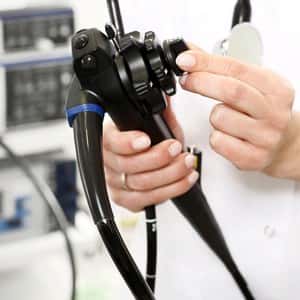
Colonoscopies save lives. The procedure in which a gastroenterologist examines the lining of the colon for pre-cancerous growths called polyps allows for early detection of colon cancer. In addition, the polyps can generally be removed in the course of the procedure so that they can’t cause any further trouble. Some people postpone a colonoscopy because they worry about the preparation required. During this process, the colon is flushed out to cleanse it so that any growths won’t escape detection. But once you wash all the bacteria out of the bowel, how do they re-establish themselves? A healthy digestive tract has a flourishing ecological system of microbes. Perhaps removing bacteria and reducing diversity could help explain why some patients have reported post-colonoscopy problems.
Coping with Post-Colonoscopy Problems:
Q. I recently read about a 60-year-old man having problems after a colonoscopy. I had similar trouble after the procedure with alternating diarrhea and constipation, as well as a lot of pain that the doctor called Irritable Bowel Syndrome. He suggested narcotics, in which I had no interest.
I put up with the pain and mess for about five years. Then I got a cut on my arm while I was working on a construction site. It became infected, and the doctor gave me a broad-spectrum antibiotic. The day I took the last dose of the antibiotic, my bowel problems cleared up and did not return. Apparently, I had picked up a stubborn infection from the colonoscope.
Infection from the Colonoscope?
A. Your story is fascinating. Colonoscopes can sometimes be contaminated (American Journal of Infection Control, Aug. 2015). Of course, there is no way to tell if that is the source of your post-colonoscopy problems.
Reduced Bacterial Diversity:
Another possibility is that the “cleansing” of the digestive tract in preparation for the colonoscopy disrupted the balance of microbes in your digestive tract (European Journal of Gastroenterology & Hepatology, May 2016).
The impact of antibiotics on the microbes living in the digestive tract is not yet well understood (Cell, Sep. 6, 2018). Often, antibiotics kill gut microbes indiscriminately. Consequently, people may sometimes have trouble re-establishing their original ecological balance. However, it sounds as though your antibiotic experience was far more positive since it solved your post-colonoscopy problems.
Citations
- Ofstead CF et al, "Persistent contamination on colonoscopes and gastroscopes detected by biologic cultures and rapid indicators despite reprocessing performed in accordance with guidelines." American Journal of Infection Control, Aug. 2015. DOI: 10.1016/j.ajic.2015.03.003
- Drago L et al, "Persisting changes of intestinal microbiota after bowel lavage and colonoscopy." European Journal of Gastroenterology & Hepatology, May 2016. DOI: 10.1097/MEG.0000000000000581
- Suez J et al. "Post-antibiotic gut mucosal microbiome reconstitution is impaired by probiotics and improved by autologous FMT." Cell, Sep. 6, 2018. DOI: 10.1016/j.cell.2018.08.047

